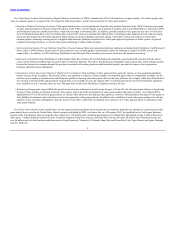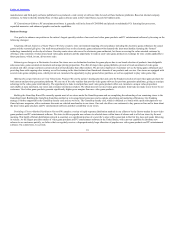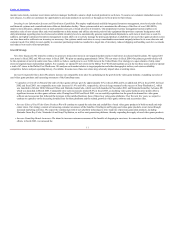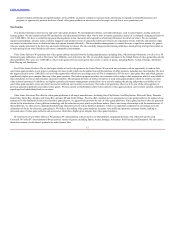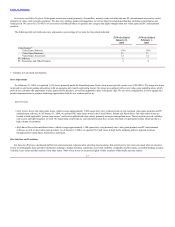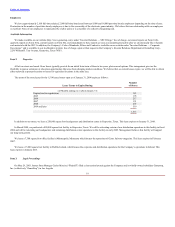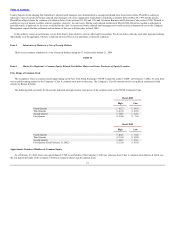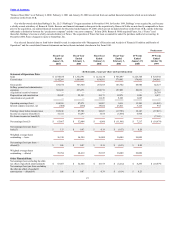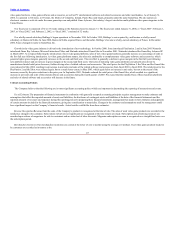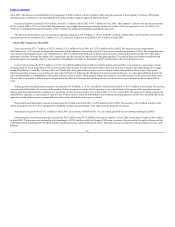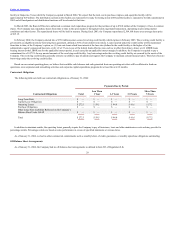GameStop 2003 Annual Report Download - page 28
Download and view the complete annual report
Please find page 28 of the 2003 GameStop annual report below. You can navigate through the pages in the report by either clicking on the pages listed below, or by using the keyword search tool below to find specific information within the annual report.
Table of Contents
County Superior Court alleging that GameStop’s salaried retail managers were misclassified as exempt and should have been paid overtime. Plaintiff is seeking to
represent a class of current and former salaried retail managers who were employed by GameStop in California at anytime between May 29, 1999 and the present.
Plaintiff has alleged claims for violation of California Labor Code sections 203, 226 and 1194 and California Business and Professions Code section 17200. Plaintiff is
seeking recovery of unpaid overtime, interest, penalties, attorneys’ fees and costs. During court-ordered mediation in March 2004, the parties reached a settlement in
principle which, if approved by the court, would define the class of current and former salaried retail managers and would result in an immaterial cost to the Company.
Management expects that the settlement and resolution of this case will take place in fiscal 2004.
In the ordinary course of our business, we are from time to time subject to various other legal proceedings. We do not believe that any such other legal proceedings,
individually or in the aggregate, will have a material adverse effect on our operations or financial condition.
Item 4. Submission of Matters to a Vote of Security Holders
There were no matters submitted to a vote of security holders during the 13 weeks ended January 31, 2004.
PART II
Item 5. Market For Registrant’s Common Equity, Related Stockholder Matters and Issuer Purchases of Equity Securities
Price Range of Common Stock
The Company’s Class A common stock began trading on the New York Stock Exchange (“NYSE”) under the symbol “GME” on February 13, 2002. As such, there
was no public trading market for the Company’s Class A common stock prior to that time. The Company’s Class B common stock is not publicly traded and is held
entirely by Barnes & Noble.
The following table sets forth, for the periods indicated, the high and low sales prices of the common stock on the NYSE Composite Tape.
Fiscal 2003
High Low
Fourth Quarter $18.57 $ 14.30
Third Quarter $ 18.92 $ 12.66
Second Quarter $14.85 $ 11.55
First Quarter $ 13.00 $ 7.59
Fiscal 2002
High Low
Fourth Quarter $20.24 $ 8.50
Third Quarter $ 21.45 $ 14.90
Second Quarter $24.21 $ 15.10
First Quarter (from February 13, 2002) $ 21.20 $ 18.02
Approximate Number of Holders of Common Equity
As of February 23, 2003, there were approximately 7,300 record holders of the Company’s $.001 par value per share Class A common stock. Barnes & Noble was
the sole beneficial holder of the Company’s $.001 par value per share Class B common stock.
19


